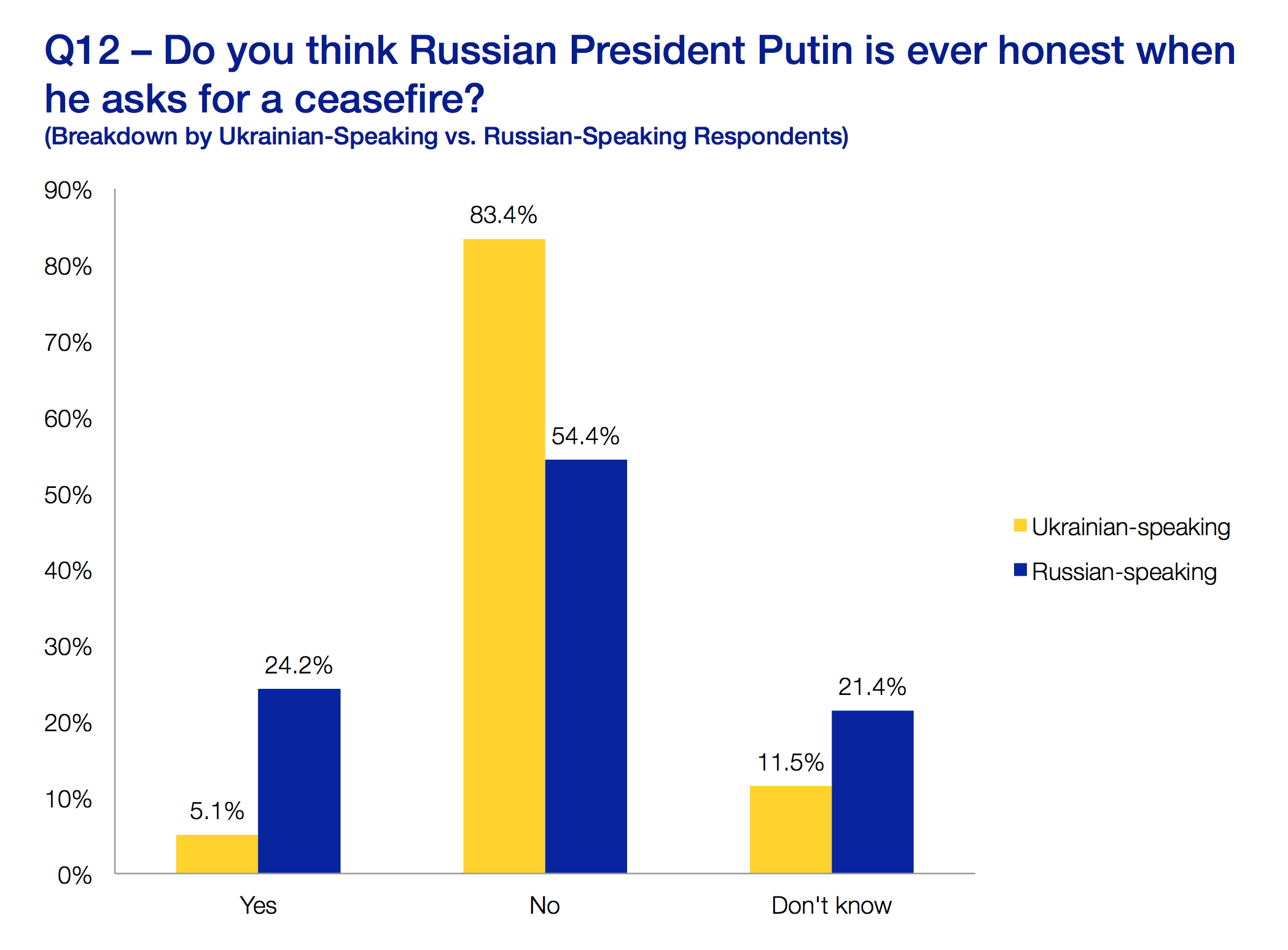The RIWI Corporation’s (RIWI) proprietary all-device all-country online survey technology platform (RDIT™) captured fresh attitudinal data from more than 2,500 Ukrainian- and Russian-speaking respondents from within Eastern and non-Eastern Ukraine from September 4th to September 10th, 2014. Some of the data reflect respondents’ thoughts on whether Putin can ever be honest when he asks for a ceasefire; if Russia should receive increased sanctions; and if the United States should provide Ukraine with arms and munitions. The findings show the most current thoughts of Ukrainians during this time of unrest that carries potential geo-political implications for the world.
Do the findings mean that there is less support for secession among Russian speakers in Eastern Ukraine than the separatists claim? Do the findings mean that there is less support for Russian troop movements within Ukraine among the Russian-speaking population than Putin claims when he purports to be acting to protect them from Ukrainian threats?

The analysis shows 83.4% of Ukrainian-speaking respondents in Ukraine do not believe Putin to ever be honest when he asks for a ceasefire. Worth noting is that 68.9% of Ukrainian-speaking respondents believe there should be increased sanctions against Russia, as do 46.6% of Russian-speaking respondents. In addition, 57.2% of Russian-speaking respondents do not support the creation of a separate Eastern state within Ukraine.
Further analysis shows 44.8% of Ukrainians believe the rebel uprising is, in fact, a Russian invasion. The study also looks at how effective respondents believe the Ukrainian army is at fighting the pro-Russian rebels; 43.4% say they do not feel the army is effective.
Please click here to review the entire study (includes all questions and data cuts broken down by Overall Respondents, Ukrainian- vs. Russian-speaking Respondents, and Non-Eastern vs. Eastern Region Respondents) and to learn more about RIWI’s proprietary random domain intercept technology (RDIT) and RIWI’s focus in all-country geo-political risk.
